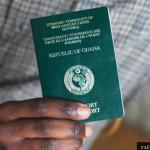When 28-year-old Kenyan marketing executive Nelly Sironka told her family she planned to get sterilized, her mother wept. “She said I was rejecting God’s plan,” Sironka recalls. But for Sironka—child-free by choice—the decision was liberating. “Motherhood felt like a cage. I want to build my career and travel.”
Nelly Sironka is part of a growing, though still small, cohort of African women opting for permanent birth control, a trend documented in recent BBC Africa investigations. Their choices reflect a seismic cultural shift in a continent where motherhood remains deeply tied to a woman’s social worth.
The Pull of Autonomy
For women like Muthoni Gitau, 34, sterilization offers freedom from societal pressure. After years of dodging relatives’ questions about marriage and kids, the Nairobi IT specialist underwent tubal ligation in 2023. “I’m done pretending I want children to make others comfortable,” she says.
The BBC reports that educated, urban women increasingly view sterilization as a feminist act—a way to prioritize careers, education, or simply their peace of mind. Platforms like YouTube and Twitter amplify these narratives, with hashtags like #ChildfreeAfrica connecting thousands.
The Push of Coercion
But choice isn’t universal. The BBC uncovered cases of marginalized women—particularly those living with HIV—being sterilized without consent. Maureen (name changed), 37, learned her uterus had been removed during an emergency C-section in a Kenyan hospital.
“They said I was HIV-positive and didn’t need more kids,” she says, her voice trembling. Activists condemn such abuses as violations of bodily autonomy.
Medical Gatekeeping
Even willing women face hurdles. Doctors often refuse to sterilize younger patients or those without children. “They asked, ‘What if your future husband wants kids?’” Gitau recounts, after consulting five gynecologists. Such paternalism persists despite Kenyan law permitting voluntary sterilization.
A Continent at a Crossroads
The trend mirrors global shifts but carries unique weight in Africa, where 75% of women aged 15–49 use no modern contraception (UN data). Sterilization rates remain low (under 1% in most countries), yet demand is rising among urban professionals.
Why It Matters:
- Policy Gaps: Few African nations have clear guidelines on voluntary sterilization.
- Feminist Momentum: Advocacy groups push to destigmatize child-free lives.
- Double Standards: Men face far fewer barriers to vasectomies.
Voices of Change
Back in Nairobi, Sironka has no regrets. “My value isn’t in my womb,” she says. Meanwhile, survivors of forced sterilization demand justice—and a future where all African women’s choices are respected.
Source: BBC Africa’s investigative series “The Sterilization Divide” (2025), anonymized patient testimonies, and UN Population Fund data.
“My value isn’t in my womb.” — Nelly Sironka, 28
Leave a comment
Your email address will not be published. Required fields are marked *




